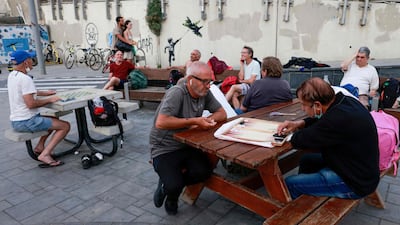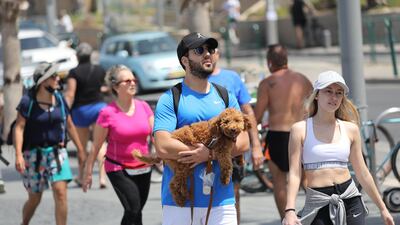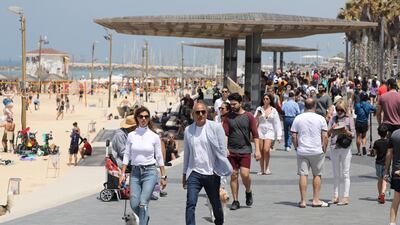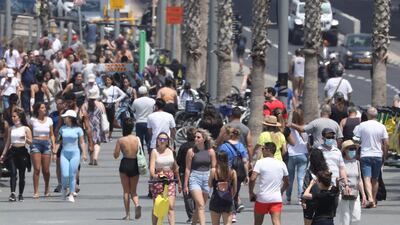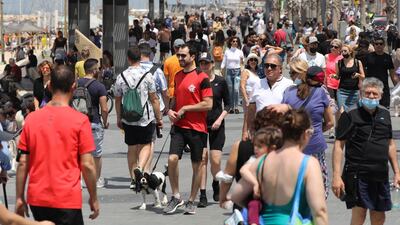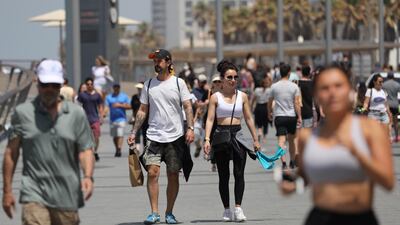Israel reported no deaths from Covid-19 on Saturday, a milestone in its battle against the pandemic.
The country is leading the world in vaccinations per 100 citizens, followed by the UAE and Chile. Bahrain, the US and UK also rank highly.
According to Our World in Data, a data science publication, Israel has administered 120 doses of the vaccine per 100 citizens, leading to a rapid fall in cases and deaths even after lockdowns were lifted.
Cases have dropped 98 per cent since January, the last peak of the country’s outbreak.
Deaths also dropped sharply, down 87 per cent from the start of the year, according to data from Israel’s Weizmann Institute for Science.
“Life is now back to normal except for masks in closed places. Vaccines pretty much eradicated Covid-19 from Israel, at least for the time being,” said Eran Segal, a data scientist with the institute who has been tracking the course of the virus.
In June last year, strict lockdowns briefly resulted in no deaths.
High vaccination rates have gradually returned life to normal, and last week residents were allowed to go outside without face masks.
Restaurants, cinemas and music venues are frequently full to capacity.
There have been 6,346 deaths from Covid-19 out of a population of nine million, according to the Ministry of Health.
To maintain momentum against the disease, Israel has agreed with Pfizer and Moderna to purchase 16 million additional doses of vaccines.
Prime Minister Benjamin Netanyahu said that a second “booster” rollout out of doses would occur in six months.
Mr Netanyahu said last Tuesday that the next phase of the campaign would involve vaccinating children in the 12-15 year-old age group, pending regulatory approval.
Pfizer chief executive Albert Bourla has said that people will be "likely" to need a third booster shot of the drugmaker's two-dose vaccine within 12 months and could need annual shots.
Israel also counts East Jerusalem Palestinians among its population and has given vaccines there.
The 5.2 million Palestinians in the occupied West Bank and the Islamist Hamas-controlled Gaza Strip have been receiving limited supplies of vaccines provided through the global Covax vaccine-sharing scheme.
Around 167,000 citizens in Palestinian Authority areas have received at least one dose, according to the Palestinian Health Ministry.
New strains and travel restrictions
One thing authorities in Israel remain concerned about is the risk posed by new strains of the virus. Some studies suggest these strains can reduce the efficacy of vaccines.
Mr Bourla told AFP that “real world data” showed that the vaccine was very effective against variants, including those identified in the UK, Brazil and South Africa, although he did not mention a newly identified variant in India.
Israel is currently advising citizens not to travel to some countries hit hard by Covid-19, including Brazil, South Africa and India, where new strains are prevalent.
Additional reporting by agencies
